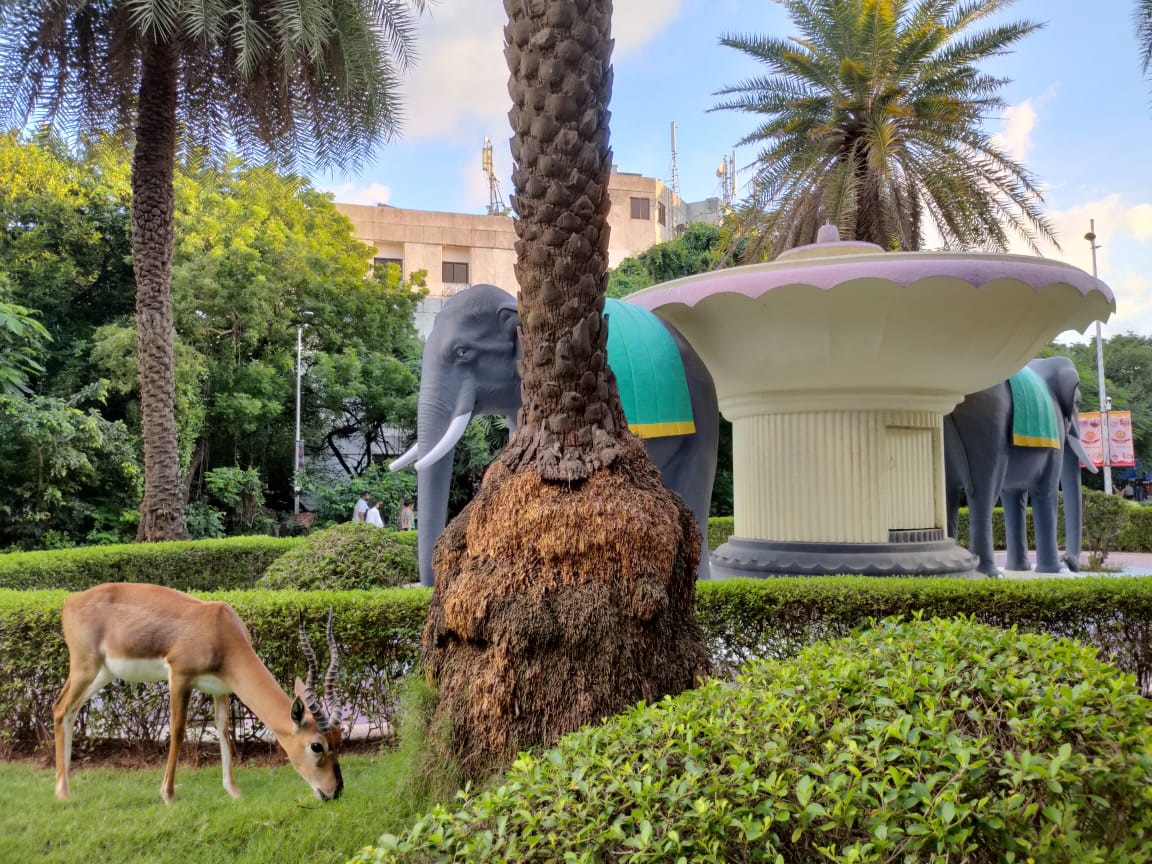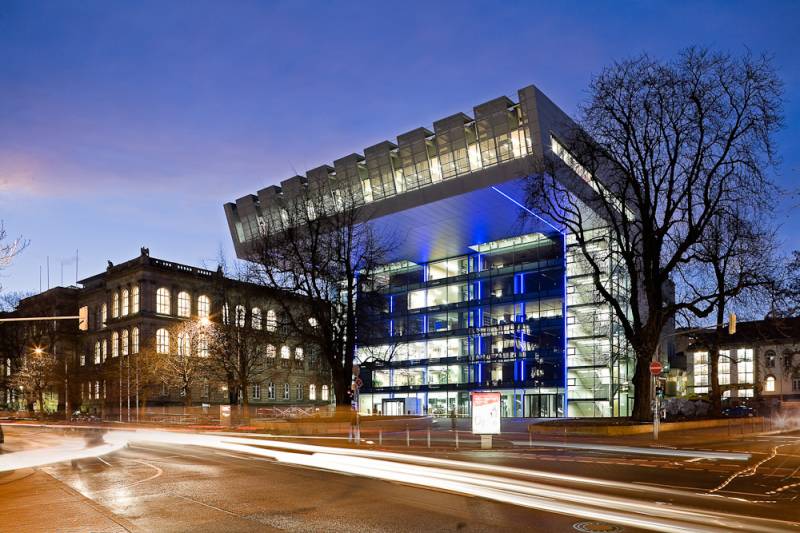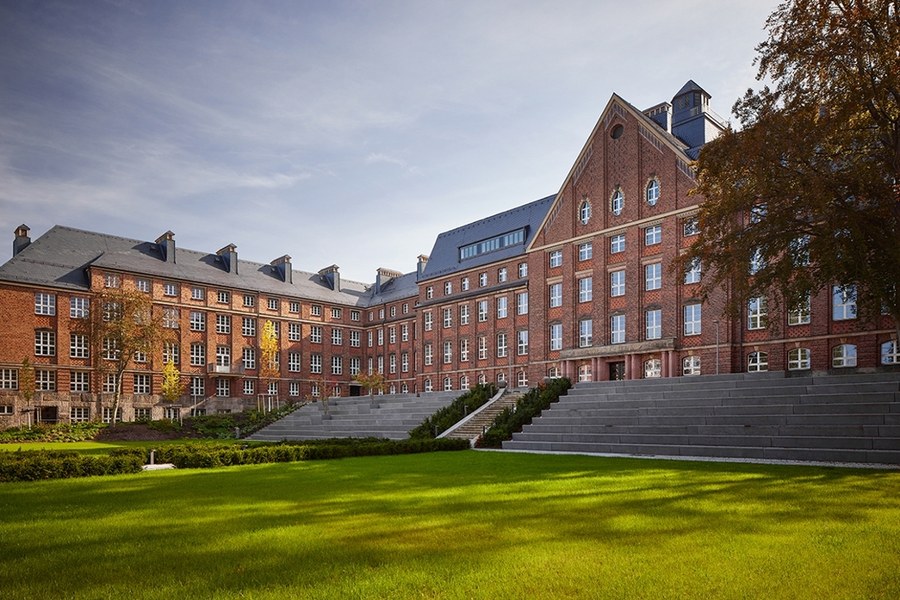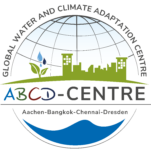Joint Master's Program Water Security & Global Change
Take a look on our upcoming Master Program.
Overview and Background
The Joint Master’s program on “Water Security and Global Change”, is truly international as we accept applications from all nationalities and expose them to the learning environment in the Global South and Global North on a pressing and persuasive topic of Water Security. The new Master’s program will combine the expertise of all partners towards an integrated and holistic approach, serving the needs of regional, national, and international stakeholders. Existing modules will provide a baseline for the new program. It will have a modular structure that includes a mobility window for study abroad and options for specializations. Part of the joint effort will be the coordination of student mobility as well as the development of communication-, dissemination- and marketing strategies and their implementation. The courses shall be taught by experts from the respective institutions. Internships and Master theses will be conducted in close cooperation with selected companies, governmental agencies, and NGOs. Based on a jointly developed and operated curriculum a new study program is set up jointly at three degree-awarding (RWTH Aachen, IIT Madras, TU Dresden) universities with two associated partners (UNU Flores and AIT Bangkok) and a joint degree is awarded. The accreditation would be realized through the participating universities separately. This program will enable the mobility of the enrolled students amongst the 3 universities as a single cohort, where all the enrolled students will commence the academic year at IIT Madras for about 9 months, followed by 5 months at TU Dresden and 5 months at RWTH Aachen and execute the Master’s thesis in any of the above locations for 5 months.
Study Program
IIT Madras is offering 5 courses (4 Mandatory and 1 Elective), and TU Dresden and RWTH Aachen are offering 6 courses each (3 Mandatory and 3 Elective courses). The Final semester is dedicated to execution of a Master’s Thesis with advisors from one or more of the partner and/or associated universities.
Program Timeline

The Joint Master Program has a scope of earning 120 ECTS-Points / 213 IITM credits in total. It consists of three semesters of course work with 90 ECTS-Points / 159 IITM credits in total and a fourth semester of thesis of 30 ECTS / 54 IITM credits. Each semester consists of 30 ECTS-Points / 54 IITM credits of course work with courses of 5 or 7.5 ECTS-Points. Thirty ECTS (51~54 IITM credits) per semester may change according to the agreed schedule (see above Program Timeline Table). Course work consists of mandatory and elective courses. Courses are offered equally by all 3 partner universities that sum up to 30 ECTS-Points / 53 IITM credits provided by each partner university. The programme enables to define up to 30 ECTS-Points / 53 IITM credits elective courses.
Module Description

- 1. Physics-Chemical processes for Water & Wastewater Treatment Click to open PDF
- 2. Sustainability in River Basin Management Click to open PDF
- 3. Water, Health and Hygiene Click to open PDF
- 4.Water Resources Planning & Management Click to open PDF
- 1. Contaminant Transport Modelling Click to open PDF
- 2. Ocean Environment policy & Coastal zone Management Click to open PDF
- 3. Technology & Sustainable Development Click to open PDF
- 4. Coastal Engineering Click to open PDF
- 5. Numerical Techniques in Ocean Hydrodynamics Click to open PDF

- 1. Climate Adaptation in Coastal & Hydraulic Engineering Click to open PDF
- 2. Flood Protection Click to open PDF
- 3. Global changes and Sustainable Development Click to open PDF
- 1. International Project Management Click to open PDF
- 2. Technological Modernization & Globalization Click to open PDF
- 3. Environment, Local Economies & Resource Conflict Click to open PDF
- 4. Geographic Information System in Water Management I Click to open PDF
- 5. Hydrodynamic Simulation Click to open PDF
- 6. Seminar on Hydraulic Engineering Click to open PDF
- 7. Numerical Modelling in Water Resources Management Click to open PDF
- 8.Geographical Information Systems in Water Management II Click to open PDF
- 9.Flood Risk Management Click to open PDF
- 10.Sediment Transport & Morphodynamics Click to open PDF
- 11.Industrial Waste Water Treatment Click to open PDF
- 12.Sanitary Engineering in Developing Countries Click to open PDF

- 1. Ground Water Click to open PDF
- 2. Urban Water Management Click to open PDF
- 3. Water extremes – Risk Management & Adaptation Click to open PDF
- 4.Hydraulic Engineering Click to open PDF
- Appendix 2 -Curriculum Click to open PDF
- 1. International Water Issues Click to open PDF
- 2. Climate Systems & Climate Modelling Click to open PDF
- 3. Natural Forest Management & Restoration in the Tropics Click to open PDF
- 4. Environmental Perspectives on Resource Nexus (UNU-FLORES) Click to open PDF
- 5. From Concept to Policy and Practice Impact: Advancing the Resource Nexus (UNU-FLORES) Click to open PDF
Eligibility Criteria
- Civil Engineering
- Mechanical Engineering
- Environmental Engineering
- Hydro Science Engineering
- Water Resources Engineering
- Computational Engineering
- Agricultural or Landscape Engineering
- AICTE, AIU, ACU, IAU, Zentralstelle für ausländisches Bildungswesen
- IELTS: 6.5 minimum overall, with at least 6.0 in each component
- TOEFL: 88 overall with no less than 21 in Reading, 20 in Listening, 22 in Speaking and 21 in Writing
Application
To apply for this program Click Here!
Join our esteemed program and pave your path to success! We’re thrilled to announce that applications are now open to all international students who meet the eligibility criteria.
Here’s how to apply:
Step 1: Complete our simple online application form. An application fee of INR 1000 for Indian nationals and 15€ for foreign nationals is applicable.
Step 2: Await preliminary screening results. We’ll keep you informed every step of the way!
Step 3: Enter our secondary screening process, which may include online tests and/or interviews conducted by our Selection Committee.
Step 4: Selected students will receive an email inviting them to enroll in the Joint Masters Program
Application to Admission Timeline
| Online Application Deadline | 30 April 2024 |
| Shortlisting and Interview Process | 01 May – 21 May 2024 |
| Announcement of results | 31 May 2024 |
| Program Commencement | 29 July 2024 |
Fees Structure
-
- Fees at IIT Madras – INR 36400 per semester
- Fees at TUD – Euros 287 per semester
- Fees at RWTH – Euros 335 per semester
- Total Fees per semester = 622 Euros + 36400 INR
Note: Students are individually responsible for acquiring VISA to travel to India and Germany.
– Medical Insurance is inclusive with IITM fees, students need to acquire insurance for the proposed period of stay in Germany.
– Accommodation, living and traveling costs are not included in the fees. Students can avail scholarship opportunities available for the same
What Does This Program Offers?
- Understanding Water Systems: Students would gain a deep understanding of the hydrological cycle, the various components of water systems, and how water interacts with the environment, society, and ecosystems.
- Global Change Impacts: Explore the effects of global change, including climate change, on water resources and ecosystems. Understand how changes in temperature, precipitation patterns, and sea level rise can affect water availability and quality.
- Water Policy and Governance: Learn about the policies, regulations, and governance structures that govern water resources at various scales, from local to international, and how this impacts water security.
- Water Quality and Pollution: Study the sources of water pollution, its impacts on human health and the environment, and strategies for monitoring and improving water quality.
- Water Resource Management: Develop skills in managing and optimizing water resources, including strategies for sustainable water use, water conservation, and integrated water resource management.
- Risk Assessment and Resilience: Understand how to assess and mitigate water-related risks, such as floods, droughts, and water scarcity, and build resilience in water systems.
- Interdisciplinary Approaches: Learn how to collaborate across disciplines, integrating knowledge from environmental science, engineering, policy, economics, and social sciences to address water security challenges.
- Research and Analysis: Develop research skills and analytical abilities to investigate complex water-related problems and propose evidence-based solutions.
- Ethical and Social Considerations: Consider the ethical, social, and equity aspects of water security, recognizing that access to clean water is a fundamental human right.
- Communication and Leadership: Improve communication and leadership skills, essential for working in interdisciplinary teams and advocating for water security policies and practices.
Learning Outcomes
- Explain, discuss, and use fundamental scientific knowledge about water security, water resource management, safe water supply, water treatment and climate adaption measures.
- Design and conduct scientific water engineering experiments, process the collected data, and analyse and interpret the processed results.
- Develop and use mathematical models to simulate, process, and interpret water resource management data and solve related problems.
- Perform a literature study, identify a knowledge gap in a topic in water security and global change, formulate a research question, and build on existing knowledge in relevant fields that are required to solve the stakeholders’ problems.
- Improve methodologies for water security, ecosystems and climate adaption that drive technological innovations to improve the responsible and sustainable use of the Earth’s resource water.
- Observe, characterize, and explain Earth system processes related to application areas of water security and global change.
- Challenge existing knowledge, show a constructive critical attitude, propose novel and creative solutions, and exercise independent judgment.
- Use written and oral communication skills to effectively exchange information and ideas with scientists and engineers, the public, and other stakeholders in the field of water management and global change.
- Initiate, design, plan, and monitor a project to meet the requirements set by the stakeholder.
- Work effectively in teams of diverse expertise, talents, skills, characters, and cultures.
- Acquire new knowledge and skills to continue operating effectively.
- Uphold and evaluate ethical standards for scientific integrity and evaluate societal and economic trade-offs, and relevant ethical issues when developing technological innovations
Contact us
Email: wsgc_abcd@ge.iitm.ac.in
